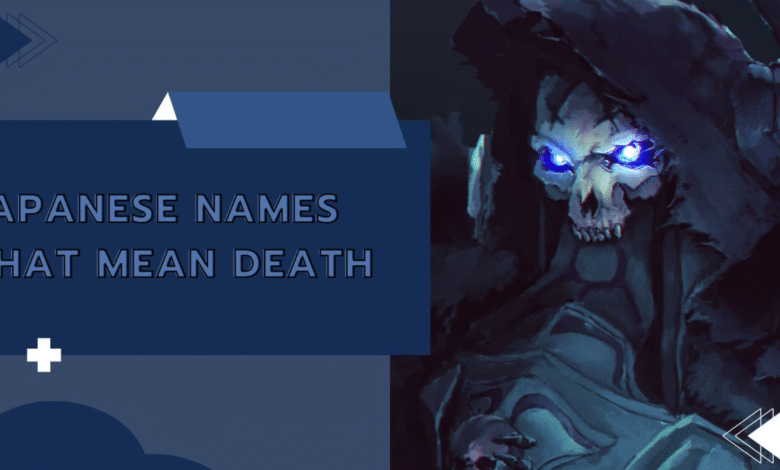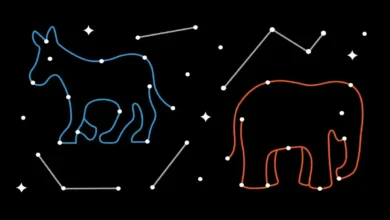Names Meaning Death: Exploring the Dark Beauty of Mortal Names

Discover the deep, symbolic world of names meaning death. Explore meanings, origins, cultural impact, and why these names remain powerful in storytelling and symbolism.
Names carry power. They reflect identity, culture, history, and often, emotion. Among the vast universe of names, some carry deeply profound meanings, echoing themes of endings, transformation, and mortality. This article delves into names meaning death, exploring their linguistic roots, mythological backgrounds, cultural significance, and their often misunderstood allure.
Whether chosen for storytelling, character creation, or symbolic significance, names with the meaning of death have a unique beauty. They evoke mystery, sorrow, and sometimes strength. This comprehensive guide will help you understand the deeper layers of these names, presented in a thoughtful, engaging, and expert tone.
Understanding the Fascination with Names Meaning Death
The idea of death is both universal and deeply personal. It’s the one certainty in life, and because of that, many cultures have developed complex rituals, myths, and language around it. Names meaning death often stem from these traditions, embodying centuries of thought about the afterlife, spirits, and the natural cycle of life.
There’s a certain allure to these names. They speak to the dramatic, the gothic, and the powerful. Some people might find them dark or unsettling, but others see them as poetic or strong. For writers, gamers, and parents looking for meaningful or symbolic names, these choices can hold profound significance.
Choosing or using a name meaning death doesn’t have to be morbid. Instead, it can be a recognition of life’s cycles, a tribute to lost loved ones, or an embrace of the mysterious and spiritual. Understanding the origin and significance behind these names can change how they’re perceived entirely.
Origins of Names Meaning Death
Names meaning death have origins across cultures and languages. Some stem from ancient myths and legends, while others come from the natural world, folklore, or historical figures. The etymology of these names often reveals how different civilizations viewed mortality.
In many cultures, gods and goddesses of death held significant power. Names derived from these deities are often dramatic and full of character. For example, Hades, the Greek god of the underworld, is a name that immediately conjures images of shadow and power. Likewise, Hel from Norse mythology presides over the dead and lends her name to cold beauty.
Beyond mythology, names may derive from words meaning “dark,” “silent,” or “gone.” In languages like Latin, Sanskrit, and Japanese, you can find elegant and haunting names that indirectly mean death or relate to the afterlife. These aren’t just words; they are echoes of how cultures interpret the end of life.
Popular Names Meaning Death and Their Backgrounds
Let’s explore some popular names that carry the meaning of death. Whether directly or symbolically, these names have become known for their dark yet meaningful roots.
Male Names Meaning Death
- Azrael – This is one of the most well-known names meaning death. Azrael is the Angel of Death in Islamic and some Christian traditions. The name itself carries an air of wisdom and solemn duty.
- Thanatos – From Greek mythology, Thanatos is the personification of death. His name is strong, ancient, and often used in literature and modern media to represent death or destruction.
- Mortis – Derived from Latin, meaning “death.” Mortis is a name with a sharp sound and ancient roots, often used in gaming and fantasy as a symbol of power.
- Shinigami – While not typically used as a personal name, Shinigami means “death god” in Japanese. It’s commonly found in anime and manga, and symbolizes the supernatural nature of death.
Female Names Meaning Death
- Mara – In Hinduism and Buddhism, Mara is associated with death and temptation. It’s a beautiful yet dark name, used widely in fiction.
- Lilith – While not directly meaning death, Lilith is often associated with darkness and the night. Her mythological presence connects her with danger and power beyond the grave.
- Persephone – The Queen of the Underworld in Greek mythology. Her name, while not literally meaning death, symbolizes the cycle of life and death, especially in nature.
- Kali – The Hindu goddess of destruction and rebirth. Kali represents not just death but transformation. Her name carries immense spiritual weight.
These names, while dark in origin, have a strong resonance. They evoke mystery and power, and are frequently used in literature, games, and film for that exact reason.
Symbolism Behind Death-Themed Names

The symbolism behind names meaning death often goes beyond the literal. These names carry emotional and spiritual weight, often representing deeper concepts like rebirth, peace, transformation, and the balance between life and death.
For instance, a name meaning death doesn’t necessarily symbolize an end. In many traditions, death is a beginning—a transition into another state. Names like Kali or Persephone embody this dual meaning. They are names of endings, but also of change and new life.
Furthermore, such names can offer a sense of protection or strength. In folklore, invoking the name of death could ward off evil. This belief has influenced naming practices, especially among spiritual or superstitious communities.
In storytelling and character development, death-related names add depth and intrigue. They tell a story in a single word and set a mood that’s both mysterious and compelling.
Death Names Across Cultures
Every culture has its own relationship with death, and the names that emerge from these perspectives reflect those attitudes. Let’s explore how different regions interpret and create names meaning death.
European Death Names
Europe, especially in its ancient languages, provides a wide range of names associated with death. Latin-based names like Mortis, Mortimer, and Morana are common in literature and medieval history.
- Morana – A Slavic goddess of death and winter. Her name has a cold elegance, evoking icy stillness and the seasonal end.
- Mortimer – Derived from Old French and Latin roots, meaning “dead sea.” It has an aristocratic ring to it, often used in gothic fiction.
These names often reflect the medieval fascination with death, plagues, and the supernatural.
Asian Death Names
In Asia, death-related names often carry deep spiritual meaning. Instead of focusing only on the end, they frequently symbolize reincarnation, karma, or peace.
- Yama – In Hindu and Buddhist traditions, Yama is the god of death. He judges souls and determines their next life.
- Hannya – Though more commonly known as a demon mask in Japanese Noh theater, it represents vengeance and death-related emotions.
Asian names tend to balance the dark with the sacred, showing death as part of an eternal cycle.
African and Middle Eastern Death Names
African and Middle Eastern cultures also have unique takes on names meaning death. In these regions, death is often integrated with ancestry, spirit worship, and honor.
- Azrael – As mentioned earlier, this angel of death is prominent in Islamic belief. He plays a neutral, dutiful role in the journey of souls.
- Efunsetan – A Yoruba name with meanings tied to death and power, often used in praise of female ancestors.
These names reflect not just death but reverence, heritage, and spiritual legacy.
Using Names Meaning Death in Fiction and Storytelling
For writers and creators, names that mean death offer an invaluable tool. They immediately set the tone for a character, hint at their role or backstory, and make them memorable.
Characters with names meaning death are often seen as villains, but that’s not a rule. In many modern stories, these characters are complex—sometimes misunderstood, sometimes heroic. A name like Thanatos or Lilith can evoke fear or fascination, making characters more dynamic.
Using such names in fantasy, sci-fi, or even realistic fiction can deepen world-building. It shows thoughtfulness in naming conventions and adds layers to character design. Many successful authors use these techniques to give their stories a timeless, mythic feel.
For gamers and worldbuilders, names meaning death can inspire entire cultures or factions. Think of the undead, dark elves, cursed kings, or guardian spirits—all perfect examples where these names thrive.
Table: Names Meaning Death and Their Origins
| Name | Gender | Origin | Meaning or Association |
|---|---|---|---|
| Azrael | Male | Hebrew/Islamic | Angel of Death |
| Mara | Female | Sanskrit | Death, destruction |
| Thanatos | Male | Greek | God of Death |
| Morana | Female | Slavic | Death, winter |
| Yama | Male | Hindu/Buddhist | Lord of Death |
| Lilith | Female | Mesopotamian | Night demon, dark power |
| Kali | Female | Hindu | Death, rebirth, power |
| Mortimer | Male | French/Latin | Dead sea |
| Persephone | Female | Greek | Queen of the Underworld |
| Hannya | Female | Japanese | Death-related emotion/demon |
Quotes About Death and Naming
“Every name is a story, but names meaning death are epics in themselves.”
“To name the dark is to tame it.”
“Death is not the opposite of life, but a part of it. Names that hold death remind us of life’s fleeting beauty.”
FAQs About Names Meaning Death
What does it mean if a name means death?
A name meaning death often symbolizes transition, power, or the mysterious nature of life and afterlife. It doesn’t necessarily signify doom, but rather depth and symbolism.
Are death names only for villains or dark characters?
Not at all. Many protagonists in books and games carry death-related names. It can show inner conflict, wisdom, or a complex background.
Can I use a name meaning death for a baby?
It depends on cultural sensitivity and personal preference. Some names like Kali or Persephone are widely used and respected despite their associations with death.
Are names meaning death offensive in some cultures?
Yes, in certain traditions, names associated with death might be considered taboo. It’s always wise to understand the cultural context before using such names.
What’s the difference between names that literally mean death and symbolic names?
Literal names directly translate to “death” or similar. Symbolic names suggest death through myth, story, or attributes, without direct translation.
Conclusion: The Poetic Power of Death Names
Names meaning death are not just dark or edgy—they are powerful, rich in history, and often beautiful. They give us a way to talk about the most human of experiences: the end, the unknown, and what lies beyond.
Whether you’re naming a character, exploring mythology, or just curious about symbolism, these names offer endless inspiration. Embracing the theme of death in naming is not about morbidity—it’s about understanding, honoring, and expressing something deep and universal.





